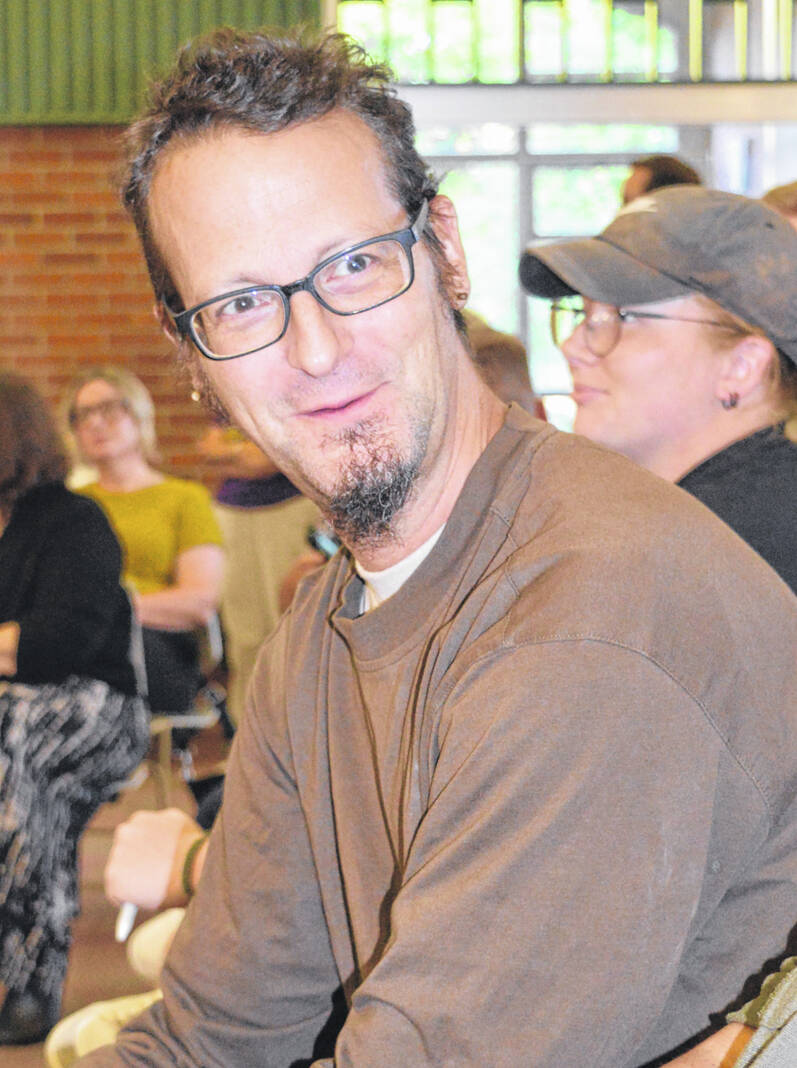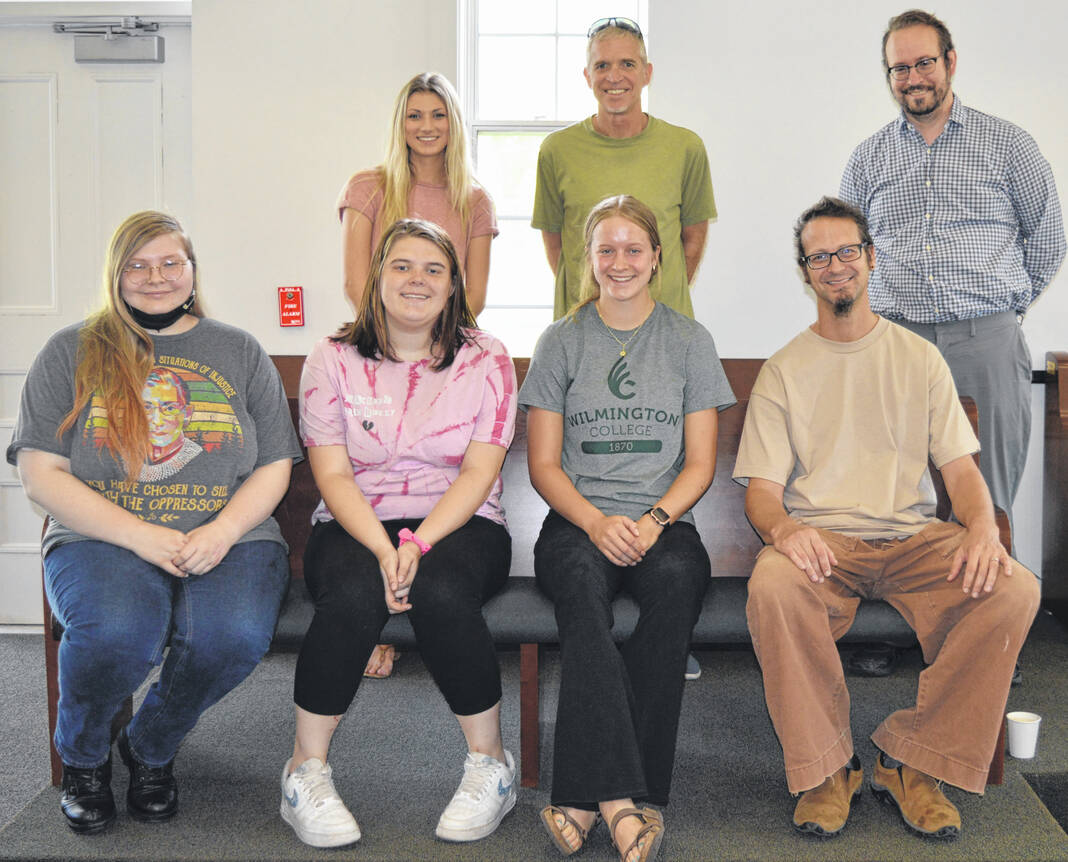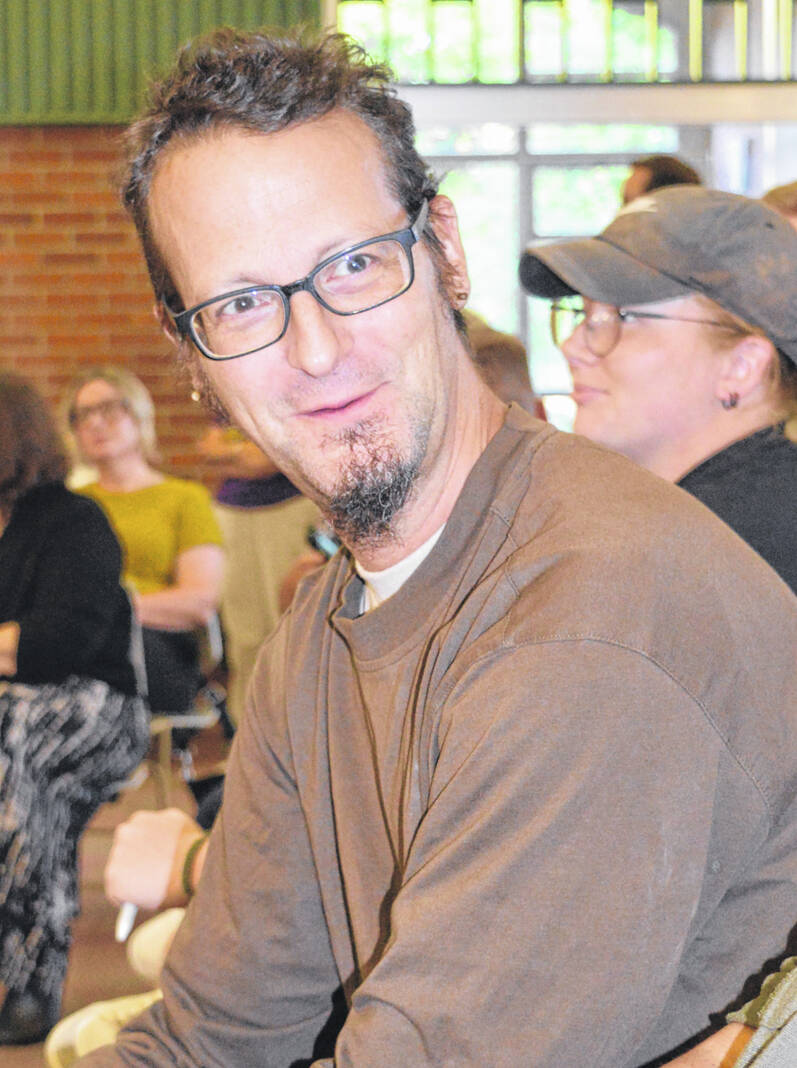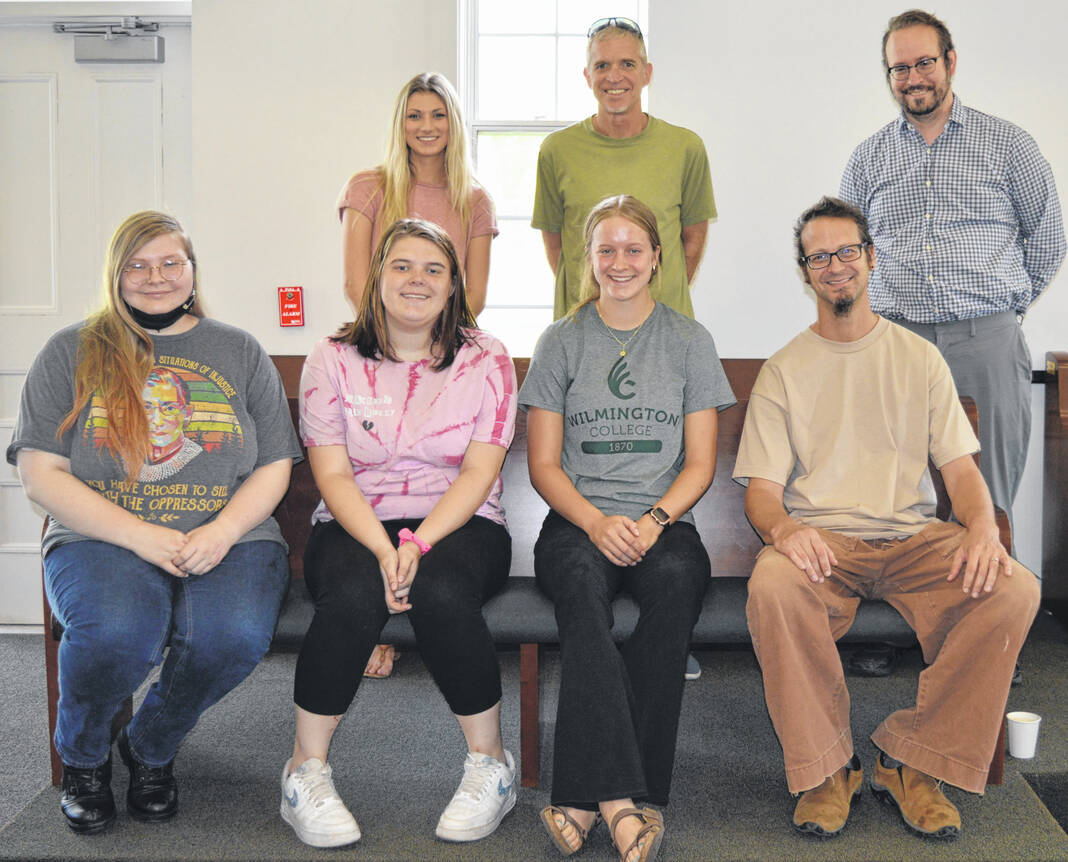



WILMINGTON — When he was in college a quarter century ago, Christian activist and author Shane Claiborne got involved in a struggle to help the homeless after unhoused people used an abandoned cathedral for shelter and the religious institution administrators objected.
Claiborne and other students hung a banner upon the vacated cathedral that asked, “How can we worship a homeless man on Sunday, and ignore one on Monday?”
Claiborne was at Wilmington College this week where he spoke at two public events including a Meet-and-Greet when the main topic was homelessness. A member of the audience, noting the possibility of a tiny-house community is being explored locally, asked Claiborne what he thought of the idea and what kind of challenges it may bring.
He prefaced his comments by saying he had received a little briefing about the homelessness here, and though there are similarities there also are a lot of things different from Philadelphia where he lives.
He said very recently in his travels he was at a church which had just established a tiny-house community on their own property.
“They had gone through zoning and everything and they had permission for like 15 tiny houses in the church parking lot essentially,” remarked Claiborne.
He recommended, for one thing, the local group bounce the idea around with people elsewhere who have already initiated a tiny-house community. He mentioned that in addition to “tiny house” communities, there are shipping-container houses that are significantly cheaper to build than regular homes.
Claiborne also said he thinks the more the people impacted can be a part of the conversation from the earliest beginnings the better. He elaborated that in many different contexts he has seen folks come up with a blueprint for something without having much input from the stakeholders and then “blind spots seem to pop up.”
Additionally, he said, “If you’re going to create a tiny-house community, then creating the sort of ethos, environment or ground rules with the community that’s living there is important because they’re probably going to be the best ones to police — in the small ‘p’ sense — their own community.
“To create security, to make sure people are not violating the terms of agreement as far as like keeping the place free of drugs and things like that — it can’t be outsiders doing that for the people there, it’s got to come from the inside,” added Claiborne.
Tiny homes are generally classified as structures under 600 square feet, but the average size of a tiny house for sale is 225 square feet, according to a 2021 survey.
The “face of homelessness” has changed in his community from 20 or 25 years ago, Claiborne said. The opioid crisis has really impacted a large percentage of what that looks like, Claiborne continued, as have mental health issues.
“It’s different from the mom and two kids who can’t find housing,” he said.
In Philadelphia there’s a coalition around affordable housing, and there’s been collaboration with some policy makers.
There were some conscientious developers who led the way — folks who said they were making a lot of money out of flipping houses — and now 2 percent of the profits of houses that are flipped goes entirely for affordable housing, he said.
Also, there’s a bulk package license for landlords who own more than 10 rental properties, he said. They have a different financial obligation, “more of a responsibility,” said Claiborne.
On a personal level, this “Red Letter Christian” suggests saying ‘hi’ to homeless individuals on the street, “to try to show love and attention and care even though that can get complicated,” hoping in the process to sometimes develop some trust and relationship. The phrase Red Letter Christian refers to how in many copies of the Bible, Jesus’ words and thus teachings are printed in red lettering and other passages are in black.
The Meet-and-Greet audience included Faith Lutheran Church Pastor Joel Richter who is chair of the Clinton County Coalition on Homelessness, and Denise Stryker who is director of the Clinton County Homeless Shelter.
Stryker said each person who comes through the shelter’s doorway has “a unique story as to why they’re there.”
Reach Gary Huffenberger at 937-556-5768.



